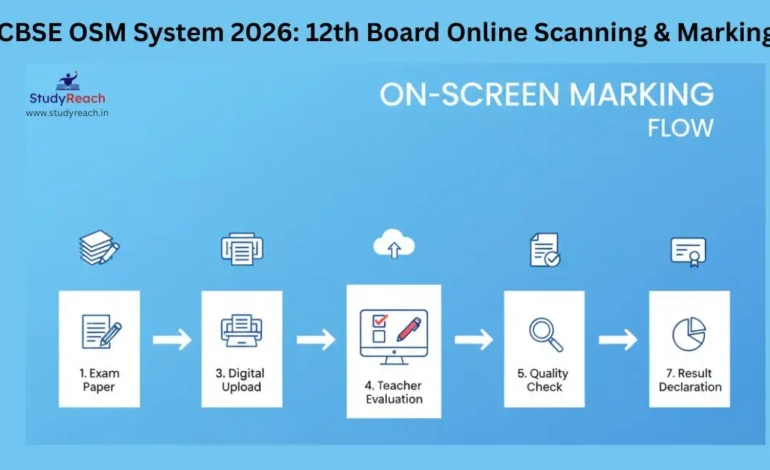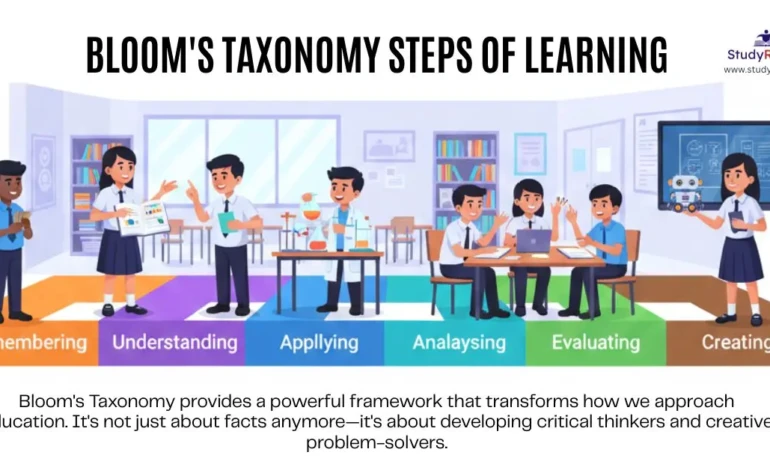Boarding School Revealed: 8 Ways It Shapes Students Life”
Shailendra Porwal
- August 4, 2023
- 13 min read
- 203 Views

In this section, we will start by explaining the concept of boarding schools and their increasing popularity. Why It’s Gaining Popularity Among Students.” We’ll also mention the purpose of the blog post, which is to reveal the real experiences and advantages of boarding schools, “Unlocking the Secrets: Discovering “What Is a Boarding School” Really Like,”. Here we will understand what a Boarding school is and How It Differs from Regular traditional Schools.”
What is a boarding school
A boarding school is an educational institution where students reside on campus throughout the academic year, as opposed to commuting from home like in regular day schools.
1. How Boarding School is Different from Traditional Schools
Traditional schools typically have students attend classes during the day and return home afterward, boarding schools provide a more immersive and residential experience, where students live and learn within the campus environment. Boarding schools often offer a more structured and disciplined approach to education, which can lead to unique benefits and challenges for students.
Residential Nature:
One of the most significant differences is the residential nature of a boarding school. In a traditional regular school, students typically attend classes during the day and return to their homes afterward. In contrast, boarding school students live on campus and reside in AC or Non AC accommodations provided by the school, which creates a 24/7 learning environment.
Continuous Supervision and Support:
Boarding schools provide continuous supervision and support to students. Teachers and staff are present on campus throughout the day, ensuring that students have access to guidance and assistance beyond regular school hours. This constant presence fosters a strong sense of community and support among students.
Immersive Learning Experience:
Boarding schools offer an immersive learning experience as students are completely immersed in the educational environment. They eat, sleep, study, play and participate in extracurricular activities within the campus, leading to a holistic approach to education that extends beyond academics.
Structured Daily Routine:
Boarding schools typically have a more structured daily routine compared to regular schools. Students follow a set schedule that includes early morning warm-up exercise, academic remedial classes, study hours, meals, and extracurricular activities. This structured approach helps instill discipline and time management skills in students.
Character Development:
Boarding schools often emphasize character development and personal growth. Living away from home fosters independence and self-reliance in students, allowing them to develop life skills, resilience, and adaptability.
Greater Extracurricular Opportunities:
Boarding schools often offer a wide range of extracurricular activities and opportunities for students to explore their interests outside the classroom. With students living on campus, they can participate in after-school clubs, sports, the arts, and other enrichment programs.
Global Diversity:
Boarding schools attract students from diverse backgrounds, and from different culture often including international students. This multicultural environment provides a unique opportunity for students to learn from and engage with peers from different cultures, fostering a global perspective.
Strong Community Bonds:
The close-knit community in boarding schools is another differentiating factor. Living together creates strong bonds among students, teachers, and staff, leading to a supportive and nurturing environment that enhances the overall educational experience.
Preparation for Independence:
Boarding schools are known for preparing students for life beyond school. The independent living experience and responsibilities help students become more self-reliant, which can be valuable in their future academic and professional pursuits.
Intensive Academic Focus:
Some boarding schools have a strong academic focus, providing rigorous academic programs that challenge and inspire students to achieve their full potential. Smaller class sizes and individualized attention can lead to enhanced academic performance.
In summary, boarding schools differ from traditional regular schools by providing a residential, immersive, and supportive environment that nurtures academic, personal, and social development in students.
2. Benefits of Boarding Schools
While discussing the differences, we must also know some of the advantages that boarding schools offer over traditional schools. The constant personal attention of teachers and staff in boarding schools allows for more individualized attention and support for students. Additionally, Boarding school provides opportunities for personal growth, independence, and the development of life skills that boarding schools can provide. So, when the question comes “What is a boarding school” this is the main point we must focus on.
3. Exploring Different Types of Boarding Schools
There are varieties of boarding schools available to cater to different interests and preferences:
Traditional Boarding School :
Overall, traditional boarding schools provide a well-rounded and structured education, fostering intellectual growth, character development, and a sense of community. They have a reputation for producing successful and accomplished students who go on to make positive impacts in their chosen careers and society. They have a legacy of providing quality education and maintaining strong academic standards. They Focus on Academics excellence and provide a rigorous curriculum.
Beyond academics, traditional boarding schools emphasize character development, moral values, and the importance of integrity and responsibility. They aim to shape well-rounded individuals with strong ethical principles. These schools have experienced and dedicated faculty and staff who are committed to nurturing students’ intellectual, personal, and social growth. They encourage students to participate in extracurricular activities, such as sports, arts, clubs, and community service. These activities foster leadership, teamwork, and a sense of responsibility. Traditional boarding schools often boast well-established alumni networks, with graduates who have excelled in various fields and contribute back to the school community.
Arts-Focused Boarding Schools:
Arts boarding schools focus on nurturing students’ talents and passion for various forms of artistic expression. They offer specialized programs in music, dance, theater, visual arts, creative writing, and other creative disciplines.
Military Boarding Schools:
These institutions integrate military-style discipline and structure into their educational approach. Students at military boarding schools receive leadership training, physical education, and a structured environment aimed at fostering discipline, responsibility, and teamwork.
Religious Boarding Schools:
Religious boarding schools incorporate religious teachings and values into their educational programs. They may be affiliated with specific religious denominations and aim to instill spiritual growth and moral values in students.
Sports Boarding Schools:
Sports boarding schools are designed for students with exceptional athletic abilities or a keen interest in sports. These schools provide high-level sports training, coaching, and facilities to help students excel in their chosen sports while balancing academics.
International Boarding Schools:
These schools attract students from various countries, providing a multicultural environment. International boarding schools focus on promoting global perspectives, cultural exchange, and understanding among students from different backgrounds.
Therapeutic Boarding Schools:
Therapeutic boarding schools are specifically designed to help students with behavioral, emotional, or learning challenges. They offer counseling, therapy, and specialized educational programs to support the holistic development of students.
STEM Boarding Schools:
STEM (Science, Technology, Engineering, and Mathematics) boarding schools focus on providing comprehensive education in these fields, preparing students for careers in science and technology-related industries.
While discussing the differences, we must also know some of the advantages that boarding schools offer over traditional schools. The constant personal attention of teachers and staff in boarding schools allows for more individualized attention and support for students. Additionally, Boarding school provides opportunities for personal growth, independence, and the development of life skills that boarding schools can provide. So, when the question comes “What is a boarding school” this is the main point we must focus on.
4.Choosing the Right Boarding School:
To conclude this section, we’ll offer tips and guidance to help readers choose the right boarding school based on their interests, goals, and needs.
Identifying Personal Goals and Interests:
The first step in choosing the right boarding school is for readers to reflect on their personal goals and interests. Whether it’s excelling academically, pursuing a particular passion like arts or sports, or developing leadership skills, understanding these aspirations will help guide the decision-making process.
Academic Offerings:
Readers will be advised to assess the academic programs offered by different boarding school, which board the school is running (CBSE/ State Board/ ICSE/ Cambridge etc). You should look for schools that provide a strong curriculum in their areas of interest and have a proven track record of academic excellence.
Extracurricular Activities:
Boarding schools often offer a wide array of extracurricular activities, from sports to arts, clubs, and community service initiatives. Readers will be encouraged to explore the extracurricular options available at each school and choose institutions that align with their passions and allow them to explore new interests.
Related Article –
10-Minute Yoga Poses for Students, Parents, and Professionals
Location and Environment:
The geographical location and overall campus environment can significantly impact a student’s experience. Must check the campus with eco-friendly, pollution free school. Some may prefer schools in bustling cities, while others may thrive in a more serene rural setting. So, first you decide what type of environment suits their personality and lifestyle.
Facilities and Resources:
Assessing the facilities and resources available at boarding schools is essential. This may include state-of-the-art laboratories, libraries, sports facilities, arts studios, and technology resources. Schools with modern facilities can enhance the overall learning experience.
Campus Culture and Community:
Understanding the campus culture and community is vital. You will be encouraged to seek out schools that have a supportive and inclusive community, fostering a sense of belonging among students. Alumni networks and the school’s values and ethos can give insight into the school’s culture.
Visiting and Interviewing:
If possible, readers will be advised to visit the shortlisted boarding schools and participate in campus tour. Interacting with current students and faculty which will provide valuable firsthand experiences.
Financial Considerations and Aid:
Financial factors play a significant role in choosing a boarding school. Readers will be encouraged to assess the cost of tuition, boarding fees, and any available financial aid or scholarship opportunities. It’s important to balance affordability with the quality of education and opportunities offered.
Consulting School Counselors and Alumni:
Seeking guidance from school counselors, educational consultants, or alumni can offer valuable insights into the boarding school selection process. They can provide objective advice based on their experiences and knowledge of various schools.
Making an Informed Decision:
The conclusion of this section will stress the importance of making an informed decision. Choosing the right boarding school involves careful research, self-reflection, and considering multiple factors to ensure the best fit for their educational journey.
By offering comprehensive guidance on these factors, readers will be equipped to make an informed decision when selecting the boarding school that best suits their individual needs, interests, and aspirations.
5. A Day in the Life of a Boarding Student
This section will provide readers with an inside look into the daily experiences of a boarding school student. “What Is A Boarding School Student’s Typical Day Like?” Must research on students Daily Routine, Classes, extracurricular activities & Study hours.
Daily Routine:
what a typical day looks like for a boarding school student. This includes waking up in the morning, attending classes, meals, and evening activities. The routine may vary slightly from one boarding school to another, but it will generally provide a structured and well-organized schedule for students.
Classes:
Must know the academic side of a student’s day. Like different subjects they study, the number of classes they attend daily, and the teachers who guide them. The focus will be on how boarding school classes might differ from regular day school classes.
Extracurricular Activities:
Must check whether the various extracurricular activities available to boarding school students. This could include sports, arts, clubs, community service, and more. That is the opportunities for students to explore their interests and passions beyond academics.
Study Hours:
Boarding schools often have dedicated study hours to ensure students have time for homework and review. What are there study hours other than the regular school hours which gives a contribution to a student’s academic success.
Overall, “A Day in the Life of a Boarding Student” aims to paint a vivid picture of the boarding school experience, offering readers an understanding of what a typical day entails for a student living and learning on campus. It showcases the unique opportunities and enriching lifestyle that boarding schools provide to students.
6. Boarding School Community and Support
“Building Bonds: The Power of Community in a Boarding School Environment.” What are the relationships between students, teachers, and staff, showcasing the strong support network that boarding schools foster.
7. Parent’s Perspective
If possible must have a discussion with parents of existing boarding school students, to know “from a Parent’s Eyes: Understanding What Is a Boarding School from Their Perspective.” It will motivate for choosing boarding schools and their experiences with the decision, while also discussing the impact on parent-child relationships and how parents stay connected.
8. Boarding School vs. Day School: Which Is Better?
After going with the article of this section, you must understand “What Is a Boarding School and How It Compares to Day Schools: Weighing the Pros and Cons.”
What are the advantages and disadvantages of each option, considering factors like academic performance and personal growth, to help readers make informed choices.
In conclusion
Delving into the world of boarding schools has been a captivating journey, where we have unraveled the mysteries surrounding these unique educational institutions. Throughout this exploration, we have discovered that boarding schools offer far more than just academics; they provide an immersive and transformative experience that extends beyond the classroom.
As we reflect on “What Is a Boarding School,” we have learned that these institutions foster an environment of continuous support and encouragement. They empower students to grow both academically and personally, equipping them with essential life skills that extend well into their futures.
Boarding schools are not merely places of learning; they are communities that foster lifelong connections among students, teachers, and staff. The sense of belonging and camaraderie within these campuses create an environment that fosters personal growth and emotional development.
Our journey has also allowed us to dispel myths and misconceptions surrounding boarding schools. We now recognize that they are not just for troubled students, but rather, they cater to a diverse range of interests and ambitions. Boarding schools offer a wide array of programs and extracurricular activities that ignite students’ passions and unlock their potential.
As we bid farewell to this voyage of understanding, we encourage all readers to consider the untapped possibilities that boarding schools hold. Whether it be the pursuit of academic excellence, the exploration of creative arts, the development of leadership skills, or the embracing of a global perspective, boarding schools provide a nurturing environment for students to thrive.
Boarding schools are enigmatic realms that offer a tapestry of opportunities and experiences. They invite students to embark on a journey of growth, discovery, and self-discovery, ultimately preparing them to make a profound impact on the world. So, as we leave behind the mystery of boarding schools, let us carry with us the knowledge that they are gateways to an extraordinary and transformative educational expedition.
Boarding schools typically offer a more academically focused environment compared to day schools. Boarding school provides an Extra classes on daily routine for the hostellers. The presence of students on campus allows for a greater emphasis on education and minimizes distractions, resulting good academic experience and increased chances of success.
Researchers suggest that there is not a definitive right or wrong age for for a child to enrollvin boarding school admission. Determining the ideal age becomes a challenging. As the saying goes, “Every child can learn, just not the same day or the same way.” However, many experts believe that the age range of 8 to 13 years i.e : from grade III onwards is generally suitable for appropriate to start for a boarding school education. It ultimately depends on the child’s individual needs, parental condition, and the specific boarding school’s policies and programs.













